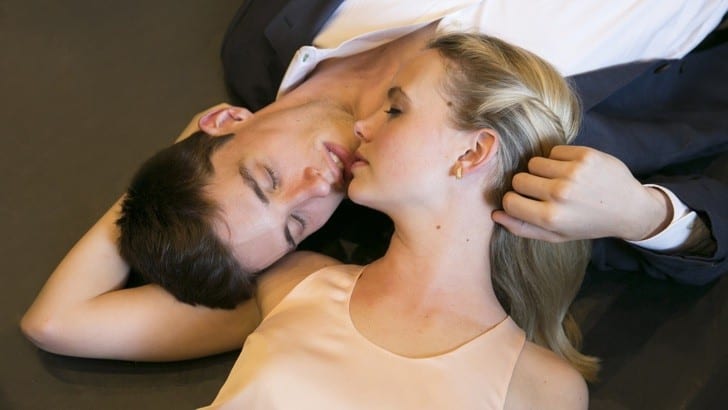
Commonwealth Shakespeare Company readies Romeo and Juliet for the Common
It wouldn’t be summer without Free Shakespeare on the Common, and this year, Commonwealth Shakespeare Company has enlisted director Allegra Libonati to be at the helm.
Libonati directed the much-lauded The Rake’s Progress last season at Boston Lyric Opera, and for twelve years she directed outdoor productions at the Summer Theatre of New Canaan in Connecticut. Here, she chats about her concept for the production, the pressure to reimagine Shakespeare, and why she thinks this is a great time for Romeo and Juliet.
This is always the great question with Shakespeare: What is your concept for this production?
We looked at the play and we looked at our world and we actually decided to set it in Italian Renaissance Verona, right when it was set. We thought there was something really powerful about doing the play in its context. We don’t have guns, we don’t have cell phones, we don’t have any of those modern ideas; we really are just bringing out the show in its context, in its time, but we’re making adjustments. I just thought that that makes it an allegory, that makes it almost a fairy tale. And the actors are so current and so modern and so grounded in the characters that it would really resonate to today.
There’s such pressure with Shakespeare to come up with new and convoluted ways to frame the story. Did you feel any pressure?
Yeah, there certainly was pressure; it’s like, “What are you going to do with it?” And, in a way, I have to keep fighting back that impulse. In a way what we’re doing is trying to dig deeply into the family psychology and making them very real people. We’re trying to treat the relationship with a lot of integrity and we’re making the language completely clear, completely buoyant, so that everybody—no matter if it’s your first time or hundredth time seeing Romeo and Juliet—you really get the story. We’re also really playing up the idea of fate in this production, this idea of these very noble people who are all trying to make things work. Many of them have gotten caught up in this blood feud that they’ve been handed, so justifying that sense of revenge and where it’s coming from and where violence comes from, where evil comes from and ultimately, this idea of fate: the love that’s going to inevitably be sacrificed to purge the world of this plague of violence that’s happening. It’s really incredible when you just dig into the play itself and the tragedy of it. How do you make it a nail-biter? How do you make it a thriller? There was a lot of pressure, to like, “What do we do?” Do we set it in modern day? Do we set it in 1800s? Because nothing to me as a director was saying it must be here, I felt like it’s better to put it in its time and let it resonate with all the conflicts, so in a way, the audience brings their conflict. We thought, put it in its time and let the audience bring their references of modern day.

The choice to stay within the play’s period is in itself a bold choice. People are always trying to meddle with it.
It’s really exciting—I didn’t think it was going to be as revelatory an idea, but actually, it’s been a really, really exciting process. Like you said, putting it in its period, we were like, “Wow, let’s go really wild, let’s keep it in its time!” [laughs]
This is not the first time you’ve directed Romeo and Juliet. What have you encountered during this second approach that you missed the first time around?
So many things. I directed it 10 years ago, and oh my goodness, the amount of details that are in the script are endlessly fascinating. What’s truly fascinating to me is how much of an absolute horror it is.
It’s so well written, there’s nothing you can do to make it better. It’s just all there.
It’s just all there. One thing we’re trying to heighten is the idea of overlapping events, almost like this inevitability that the play begins with where the world kind of spirals to its conclusion. These two people are hurtling toward this prophecy; it’s very Greek in that respect. The real story is that then ends this epic feud of hundreds of years of two families fighting that could not be ended except for this demonstration of love and loss.
There is a power in the choice to do Romeo and Juliet this year. With all the political turbulence happening right now, it would have been easy to choose something more political. Why do we need Romeo and Juliet right now?
I think that the power of Romeo and Juliet right now is that it’s both an inspiration and a warning. It’s a warning in the sense of if we go too deep without questioning our prejudices, which is really, really hard to do, then the only thing that could create a transformation is an ultimate sacrifice. I think that’s the warning of it to the feuders, who are all of us. We are all feuding in some way, we all have prejudices. I think that it’s saying this is what the cost is of your hate. Literally, that’s the play. It’s an inspiration because, if you think of Romeo and Juliet and their conflicts, they really are just trying to justify how there is such a thing as unconditional love—that unconditional love exists and has a power to change the world.
ROMEO AND JULIET. 7.19–8.6 AT PARKMAN BANDSTAND ON THE BOSTON COMMON. COMMSHAKES.ORG
Theater critic for TheaterMania & WBUR’s TheArtery | Theater Editor for DigBoston | film and music critic for EDGE Media | Boston Theater Critics Association.

